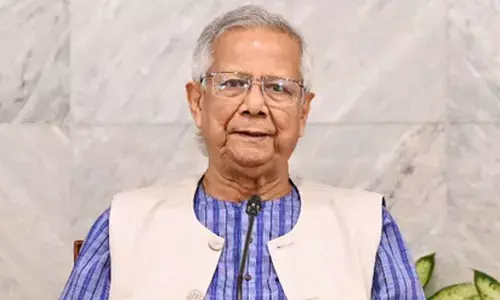60 per cent of Indian workers have job-hopped in the past: Survey

A survey by Indeed, the worlds no1 job site, has revealed that jobhopping has become a common trend amongst Indian job seekers The survey found that 56 per cent of Indian workers have voluntarily left a role after only a short period of time, with 85 per cent of respondents stating that they would add a job to their resume regardless of how long they had stayed in that role
Bengaluru: A survey by Indeed, the world’s no.1 job site, has revealed that job-hopping has become a common trend amongst Indian job seekers. The survey found that 56 per cent of Indian workers have voluntarily left a role after only a short period of time, with 85 per cent of respondents stating that they would add a job to their resume regardless of how long they had stayed in that role.
Whilst the concept of job hopping is not a new one, the Indian workforce is seeing a climb in project-based work and contract work, which is fuelling a willingness to switch roles more readily. The most popular reasons for leaving a role in a short period of time were that: the job did not live up to expectations (30 per cent); it was an unhappy work environment (29 per cent), or they were offered a better role elsewhere (38 per cent).
Of Indeed’s survey, 49 per cent of respondents saw job hopping as an opportunity to learn new skills and over 43 per cent stated job hopping could help boost their resume or identify greater job prospects. However, the trend seems to be slightly higher amongst millennial men than women wherein, 47 per cent of the latter surveyed have never voluntarily left a role after a short period of time, as compared to 43 per cent of the former.
The trend is more visible in mid-sized companies with 200-500 employees, in comparison to smaller organisations. Interestingly, ‘stickiness’ seems to be higher in traditional sectors of manufacturing with 49 per cent of respondents in Manufacturing & Utilities having never voluntarily left a role after a short period of time in comparison to 40 per cent of respondents working in the IT & Telecom sector.
In contrast to the attitudes of job seekers, employers continue to believe that frequent job movements are indicative of indecisiveness in a candidate and demonstrate a lack of loyalty. 87 per cent of employers surveyed stated that they had chosen not to interview a candidate in the past due to a history of short-term jobs. It therefore comes as no surprise that people who job hopped more frequently felt that they were missing out on jobs. 69 per cent of respondents who had changed jobs twice in the last five years stated they had been overlooked in roles they were qualified for, due to their history of job hopping.
However, whilst employers may take a different view towards job hopping, staying in the same role does not always indicate the right job fit. Although 44 per cent of respondents stated they have never job-hopped in the past, 7 in 10 respondents also reported that they had stayed in roles longer than they wanted to in order to avoid being perceived as a job hopper.
Commenting on the survey findings, Mr. Sashi Kumar, Managing Director, Indeed India said, “The millennial workforce is an interesting cohort and the world is always curious about their next move. In recent years, many studies have been commissioned to get a deeper understanding of what they, with the reputation for job-hopping, are looking for in an employer.
In the same way that the generation has redefined consumerism, studies indicate that the workplace is another commodity of consumption for the millennials: unless they feel the job is worth their while or are meaningfully engaged, they will look out for the next best opportunity. Employers need to devise ways in which they can retain and continue to attract this talent pool.”
Workers surveyed considered a short period of employment to be 16 months or less. The research was conducted by Censuswide, with 1,002 employed respondents in India (excluding people who do contract work and by definition "job hop") between 13.07.2018 - 01.08.2018. Censuswide abides by and employs members of the Market Research Society which is based on the ESOMAR principles.




















